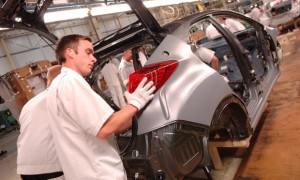Warwick Business School professor of strategic management Christian Stadler, an expert on the car manufacturing industry, said the announcement was a huge blow to the British automotive industry – and insisted that Brexit must have been a factor in Honda’s thinking.

“The headline figure is currently 3,500 job losses, but thousands more workers across the supply chain will lose well paid jobs that will be very hard to replace,” he said.
“Despite attempts to play down the significance of Brexit, it must have been a factor. Car manufacturers have repeatedly warned the gabout the threat Brexit poses to British industry.
“We have already seen job losses at Jaguar Land Rover and Nissan has scrapped plans to build the new X-Trail at its factory in Sunderland.
“Honda faces the same challenges as fellow Japanese car maker Nissan. The global economy is slowing down, which has hit key markets such as the US and China.
“The crackdown on diesel engines has also hit sales and will continue to do so as car manufacturers face fierce competition to bring a new generation of greener vehicles to market as quickly as possible.”
These difficult conditions would put pressure on companies to be more competitive with their prices, he said.
“That is bad news for British car manufacturing if vehicles are subject to new tariff after Brexit, which is looking increasingly likely, as Japan’s new deal with the EU could soon make it cheaper to build cars elsewhere.
“Most likely we will see Japanese companies consolidating more of the manufacturing process at home.
“Also, the supply chain for most British-made cars crosses the Channel several times as parts are shipped back and forth, so any delays at the border after Brexit could severely disrupt the industry’s ‘just-in-time’ production method.
“Companies from Japan and other countries were attracted to Britain because it gave them easier entry to the lucrative European market, through an English-speaking country. At the moment, there is no deal in place to continue that after Brexit.
“The UK will not be able to strike better trade deals than it currently has before it leaves the EU, so it starts to look like a less attractive place to build cars.”
David Bailey, an economics professor at Aston University in Birmingham, told The Guardian that there were a range of factors behind Honda’s decision but and it was “probably trying to be polite” by not mentioning Brexit publicly.
A lack of clarity on Brexit and the government’s industrial strategy had made the decision easier for Honda, he said.
“I think we’re seeing a collision between Brexit uncertainty making investment difficult, just as the industry is transforming itself,” he said.
“Honda came to the UK because it offered a launchpad into the single market. There’s a lot of bewilderment in Japan about Brexit because what we offered them has been taken away.
“We’re not upholding our side of the deal so they don’t need to either. There may have been more of a chance of the UK being a centre of electric vehicle production if we stayed in the single market and if we had a more supportive industrial strategy.”
Christian Stadler is the author of Enduring Success: What Can We Learn from the History of Outstanding Corporations?














